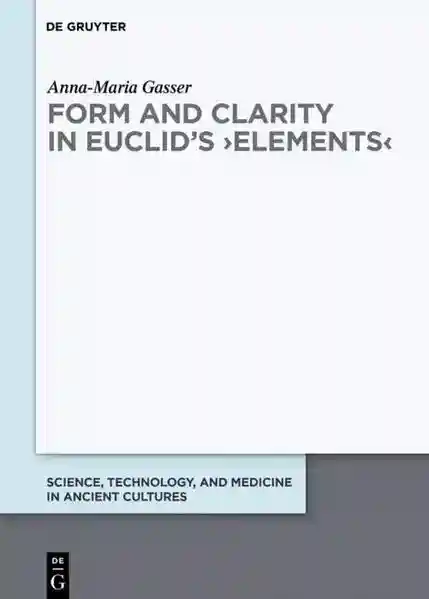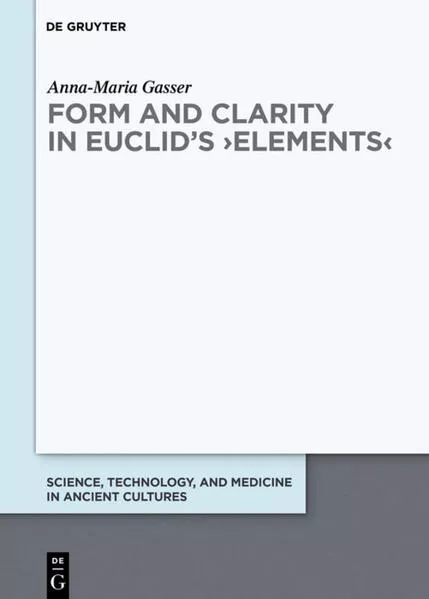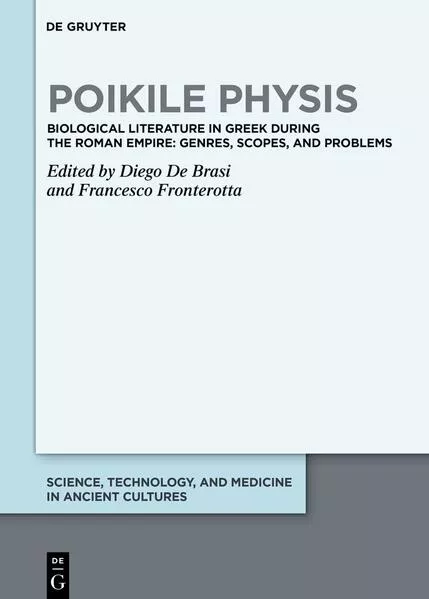Science, Technology, and Medicine in Ancient Cultures
Form and Clarity in Euclid’s › Elements‹
Chronologie aller Bände (1 - 2)

Die Reihenfolge beginnt mit dem Buch "Form and Clarity in Euclid’s › Elements‹". Wer alle Bücher der Reihe nach lesen möchte, sollte mit diesem Band von Diego De Brasi beginnen. Der zweite Teil der Reihe "Form and Clarity in Euclid’s › Elements‹" ist am 14.02.2024 erschienen. Die Reihe umfasst derzeit 2 Bände. Der neueste Band trägt den Titel "Form and Clarity in Euclid’s › Elements‹".
- Anzahl der Bewertungen für die gesamte Reihe: 0
- Ø Bewertung der Reihe: 0
- Start der Reihe: 03.10.2022
- Neueste Folge: 14.02.2024
Diese Reihenfolge enthält 2 unterschiedliche Autoren.
- Autor: Gasser, Anna-Maria
- Anzahl Bewertungen: 0
- Ø Bewertung:
- Medium: Buch
- Veröffentlicht: 14.02.2024
- Genre: Roman
Form and Clarity in Euclid’s › Elements‹
- Band: 12
- Autor: De Brasi, Diego
- Anzahl Bewertungen: 0
- Ø Bewertung:
- Medium: Buch
- Veröffentlicht: 03.10.2022
- Genre: Roman
Poikile Physis
Biological literature of the Roman imperial period remains somehow ‘underestimated’. It is even quite difficult to speak of biological literature for this period at all: biology (apart from medicine) did not represent, indeed, a specific ‘subgenre’ of scientific literature. Nevertheless, writings as disparate as Philo of Alexandria’s Alexander, Plutarch’s De sollertia animalium or Bruta ratione uti, Aelian’s De Natura Animalium, Oppian’s Halieutika, Pseudo-Oppian’s Kynegetika, and Basil of Caeserea’s Homilies on the Creation engage with zoological, anatomic, or botanical questions. Poikile Physis examines how such writings appropriate, adapt, classify, re-elaborate and present biological knowledge which originated within the previous, mainly Aristotelian, tradition. It offers a holistic approach to these works by considering their reception of scientific material, their literary as well as rhetorical aspects, and their interaction with different socio-cultural conditions. The result of an interdisciplinary discussion among scholars of Greek studies, philosophy and history of science, the volume provides an initial analysis of forms and functions of biological literature in the imperial period.

